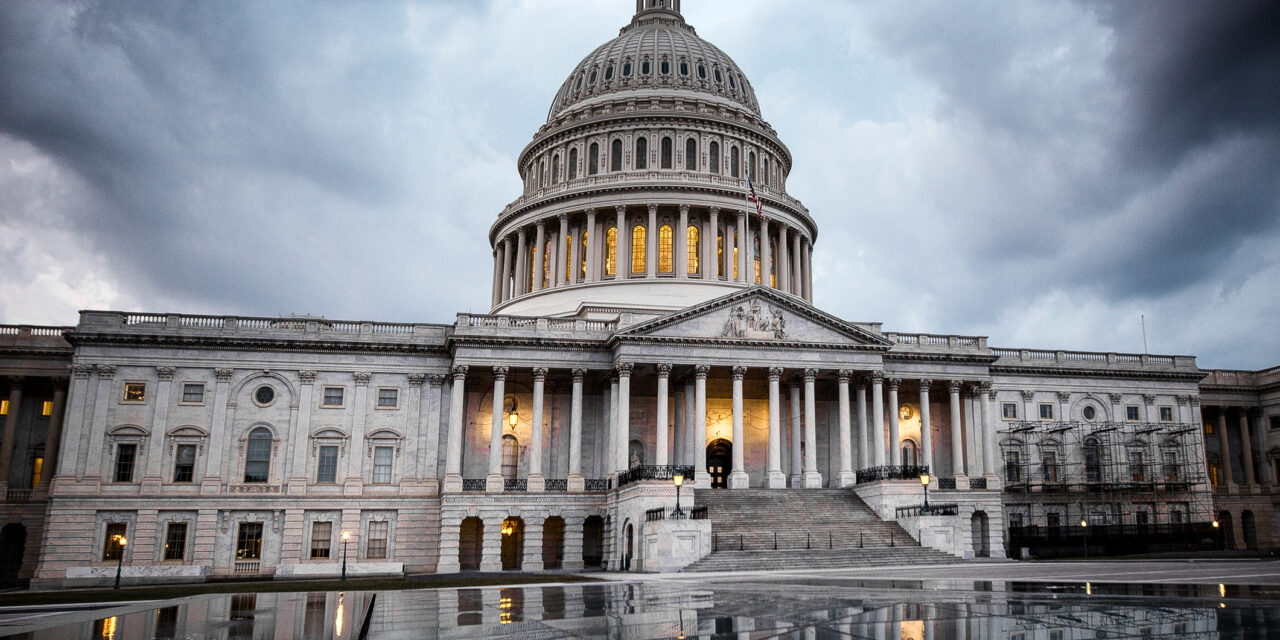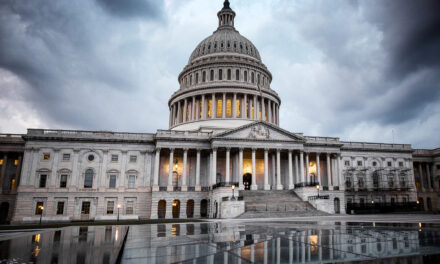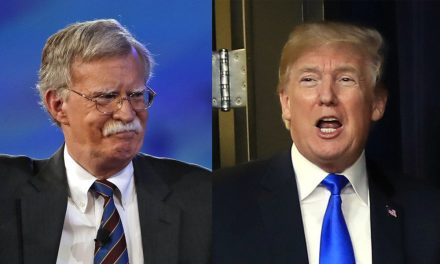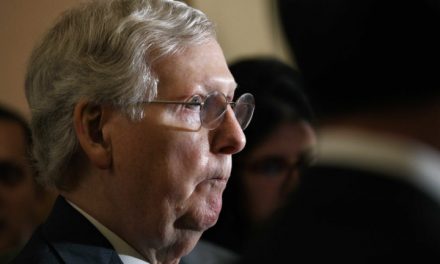For those who didn’t see Friday’s Plame hearing which featured testimony by ex-CIA members, this is my summary with lots of quotes. I saw most of the hearing on C-Span and all of the quotations are from the transcript, which you can find in full here:
The transcript runs to more than 50 pages, so even this summary is lengthy. In fact, I’ve divided it in two parts.
However, if I were writing a page one story on this, I would highlight this single quote, from former CIA operations officer Jim Marcinkowski:” Each time the leader of a political party opens his mouth in public to deflect responsibility, the word overseas is loud and clear: Politics in this country does, in fact, trump national security.”
This was an unofficial forum assembled on Friday morning, July 22, by Senator Byron Dorgan (D-ND), co-chaired by Dorgan and Congressman Henry Waxman.
After Dorgan’s brief introduction, Senator Charles Schumer of New York spoke, emphasizing that the day after Valerie Plame was named in Robert Novak’s column, he began calling CIA officials, including then-Director George Tenet, all of whom were angry, and it was Tenet who strongly requested that the Justice Department launch an investigation into the identity of the person who leaked Plame’s name.
Schumer’s point was this: “So the origins of this investigation do not come from anybody on the political side, they come from the CIA itself, which I think, from the very highest level down to the agent functioning and helping our country out there in the field, there was fury that this had happened.”
Schumer called for the security clearance of Karl Rove and Lawrence “Scooter” Libby (v.p. Cheney’s chief of staff) to be revoked, and a new internal investigation by the White House. Also “that the president should reiterate his commitment that anyone who was involved in the leak, not simply that anyone who meets that narrow and high criminal standard, be fired.”
Representative Henry Waxman spoke next. “The disclosure of Valerie Wilson’s identity as an undercover CIA agent is indefensible on many levels. It was an indefensible betrayal of her and her family. It was an indefensible affront to the men and women who are on the front lines of defending America. And it was an indefensible breach of our national security.”
He then related the case directly to the Iraq war.
“And it is an issue deeply personal to me. One of the hardest votes that I cast was to authorize the war in Iraq. Like many others, I was torn. But in the end, I sided with the president because of the administration’s insistence that Iraq was on the verge of nuclear capability. Today, we know the truth. I was misled, as were the American people. And it was Valerie Plame Wilson’s husband, Ambassador Joe Wilson, who helped expose what really happened.”
“Well, today’s New York Times fills in another piece of the puzzle,” Waxman continued.”In October 2002, CIA Director George Tenet personally called the deputy national security adviser, Stephen Hadley, to stop President Bush from using the uranium claim in his speech in Cincinnati. Around the same time, the CIA sent the national security adviser, Condoleezza Rice, a memo warning her not to rely on the uranium evidence.”
He indicated (as did others later) that this contradicts claims that the Bush White House did not know the claim about Niger and uranium was false before the State of the Union.
In speaking about accountability for the leak, Waxman said, “There is an executive order — Executive Order 12958 — that governs protection of national security information. Under this executive order, the White House has an affirmative obligation to take appropriate and prompt corrective action to address the leaks of classified information.”
“There’s a special standard for Karl Rove: There will be no questions asked and no accountability,” Waxman observed. Then he zeroed in on another action that needs to be taken: a full congressional inquiry.
“They have refused to hold these hearings, and that is why we’re doing what we can today, but we can’t subpoena Karl Rove or Scooter Libby, and they would refuse to come to appear before us. They would have to come if Congress did its job as a separate and independent branch of government and exercised its oversight responsibility for the protection our nation.”
After Representative John Conyers asked that his opening remarks be entered into the record, Rep. Louise Slaughter (D-NY) spoke about the Plame matter in the context of other Bush administration abuses.
She concluded, “The deepening scandal surrounding the leaked identity of covert CIA operative Valerie
Plame is perhaps the most poignant example of this today. At its worst, treason was committed by high-ranking White House officials. At its best, we have witnessed a startling abuse of power by this administration, one which has seriously compromised our national security, jeopardized the war on terror and placed the lives of a covert CIA operative and her contacts in danger; all of what so far appears to be a reprehensible act of political retribution.”
She added her own questions about the extent of this act:
“Given that so many of the president’s men had access to the memo, it is incumbent upon Congress, the special prosecutor and the American people to ask the following difficult question: What did President Bush know about the Valerie Plame leak and when did he know it?
Is it possible that he and Vice President Cheney, along with most of Bush’s inner circle, could have known about this plot to exact retribution on Ambassador Wilson at theex pense of national security?
Is it possible that President Bush or Vice President Cheney could have been involved themselves?
These are tough, serious questions that must be addressed.”
Rep. Jay Inslee (D-WA) was equally pointed:
“Nobody died in Watergate. And over 1,750 of our sons and daughters are dead in the sands of Iraq. And I have come here to show my respect for our intelligence covert agents and Foreign Service officers who risk their lives to get the truth to the American people.”
He then told a story about Joseph Wilson, Valerie Plame Wilson’s husband, whose New York Times oped piece set off this chain of events.
“Ambassador Joe Wilson is the guy recommended and commendated by the first President Bush as the last American officer in Baghdad in the first Persian Gulf War. When Saddam Hussein threatened to kill any American officer who took Americans out of Iraq because he wanted to keep them hostage, Saddam Hussein heard from Joe Wilson, who said, “You can come get me first and put a noose around my neck, because I’m taking my people home.” And he took everybody home safely from Baghdad before the beginning of the Persian Gulf War and he was commended for that by the first President Bush. The second President Bush was not so honorable in the treatment of Ambassador Joe Wilson in his administration as the first President Bush.”
“They took on the wrong fellow when they tried to intimidate Joe Wilson,” Inslee concluded.
Senator Dorgan then asked the panel before him for their statements. Larry Johnson had introduced Colonel Patrick Lang as his mentor, and Senator Dorgan added more of his resume: retired senior officer of U.S. military intelligence, Vietnam veteran, a Middle East specialist.
Lang spoke of the gathering of intelligence from individuals (so-called human intelligence, or HUMINT) as especially crucial in stopping terrorists, for they offer few opportunities for other kinds of surveillance—they have no missile silos to photograph from satellites, etc. Speaking of human intelligence he said, “it is a peculiarity of this kind of war that that is exactly the kind of intelligence that you have to have. “He suggested the U.S. hasn’t done very well in that area so far, but its this area of intelligence that the Plame outing has directly damaged. He called it “an assault on the ability of the United States” to perform human intelligence.
“Why would that be? It’s because HUMINT is about human beings. It’s about one person, an American person, a case officer in the parlance of the trade, causing some foreign person to trust him enough and to trust his unit and to trust the United States enough to put his life, his fortune and, indeed, his sacred honor in many cases into the hands of this case officer and the American intelligence unit that stands behind this case officer.”
Lang was highly persuasive in talking about the reality of what human intelligence gathering means. He even gave it a religious dimension.
And it imposes on the case officer and the unit behind him in the United States the kind of obligations that are as serious in some ways as the seal of the confessional, really. I mean, I’m a Catholic; I understand exactly what that means.”
“And the obligation to protect this person is absolute, in fact. And it’s not only absolute from the point of view of morality; it’s absolute from the point of view of practicality as well, because if within a practicing clandestine intelligence unit the case officers believe that their superiors will not protect the identity of their sources or their own identity, in fact, in doing things which are dangerous and difficult, then a, kind of, circle of doubt begins to spread, like throwing a rock into the water.
And it spreads in such a way so that if an intelligence service that belongs to a particular country comes to be thought generally in the world as an organization that does not protect its own, does not protect its foreign assets, then the obvious is true in that people are not going to accept recruitment, are not going to work for you. And the smarter they are, the better placed they are, the better educated they are, the less likely they are to accept recruitment and to work for you if they believe that you are not going to fight in the last ditch to protect their identities. And so, this is all completely about trust.”
Former CIA analyst Larry Johnson spoke next. His remarks, the basis for his radio address on Saturday, are more widely reproduced, so I will refer to only a few points here. He endorsed everything Lang said, and concentrated on refuting Republican talking points impugning Valerie Plame and belittling her status as a covert agent.
He referred to “one of the most malicious, disingenuous smear campaigns, not only of Ambassador Wilson, who can publicly defend himself, but of Valerie Plame his wife, who is still an officer at the Central Intelligence Agency and is unable to speak out publicly, is unable to defend herself and to correct the record.”
One element of Johnson’s testimony that no one else addressed was on the rationale for the GOP charge that Plame sent Wilson to Niger in order to embarrass the White House. He and others detailed how the chain of command at CIA and Plame’s job meant that she had no power to send anyone to do anything, but he also said this about the alleged political motive:
“Now, apart from the fact that in February of 2002, when Valerie allegedly sent Joe Wilson on this mission, at that time the administration did not have a clear, publicly defined position stipulating that, in fact, Iraq was selling uranium or trying to acquire uranium from Niger. So it mystifies me how a low-level case officer could on her own discern what the administration’s policy subsequently would be so she could put in place this dastardly scheme to send her husband to Niger to find out that that was false so that then she could embarrass the administration a year and a half later. That is laughable.”
The next speaker was Jim Marcinkowski, who earlier had been identified as being from Rep. John Conyers’ district in Michigan, but he indicated that Conyer might not want to claim him as he had once been the Michigan president of the Young Republicans.
Marcinkowski had a rich and varied background in both intelligence (working at different times for the CIA and FBI) and in law enforcement, as a prosecutor and defense attorney.
His testimony got off to an uncertain start but once he got rolling, it became clear what he was trying to do. He was demonstrating how the Plame outing looked both to ordinary Americans, and to people overseas, especially those the U.S. might want to recruit to aid in gathering national security information.
“The exposure of Valerie Plame by anyone in the White House is the same as a local police chief announcing to the media the identity of his undercover officers. It’s thatvsimple; everybody gets that. In both cases, the ability of the officer to operate is destroyed. But there is also an added dimension. An informant in a major sophisticated crime network or a CIA asset working in a foreign government is exposed they have a rather good chance of losing more than just their ability to operate.”
Foreign nationals aren’t going to pay attention to the ins and outs of the American legal system, he asserted. They are just going to see that the U.S. doesn’t protect its agents, and when one is exposed, no one is held accountable.
“The problem with a refusal to accept responsibility by senior government officials is ongoing, causes greater damage to our national security as well as our ability to collect human intelligence. But the problem of inaction by the government lies not only with government officials, but also with the media, the commentators and other apologists who have no clue as to the workings of the intelligence community.”
“Each time the leader of a political party opens his mouth in public to deflect responsibility,the word overseas is loud and clear: Politics in this country does, in fact, trump national security.”
“Each time the political machine made up of prime-time patriots and partisan ninnies display their ignorance by deriding Valerie Plame as a mere paper pusher or belittling the varying degrees of cover used to protect our officers or continuing to play partisan politics with our national security, it’s a disservice to this country.”
“By ridiculing, for example, the degree of cover or the use of post office boxes, you lessen the confidence that foreign nationals place in our covert capabilities, especially when they’re involved in a community of intelligence collection, they know how these things work. They know how they’re used. So you may fool the American public by distracting minutia but you’re not doing it for people overseas. They know better.”
There’s a very simple message here: Before you shine up your American flag lapel pin and fix your patriotism to your sleeve, think about what impact your actions are going to have on the security to the American people; think about whether your partisan obfuscation is creating confidence in the United States in general, in the CIA in particular.”
He addressed what should have been done.
“Those who take pride in their political ability to divert the issue from the fundamentalt ruth ought to be prepared to take their share of responsibility for the continuing damage done to our national security. When this unprecedented act first occurred, the president could have immediately demanded the resignation of all persons even tangentially involved. Or at a minimum, he could have suspended the security clearances of those persons and placed them on administrative leave. Such methods are routine across the country in every police department, and every American citizen understands that.”







